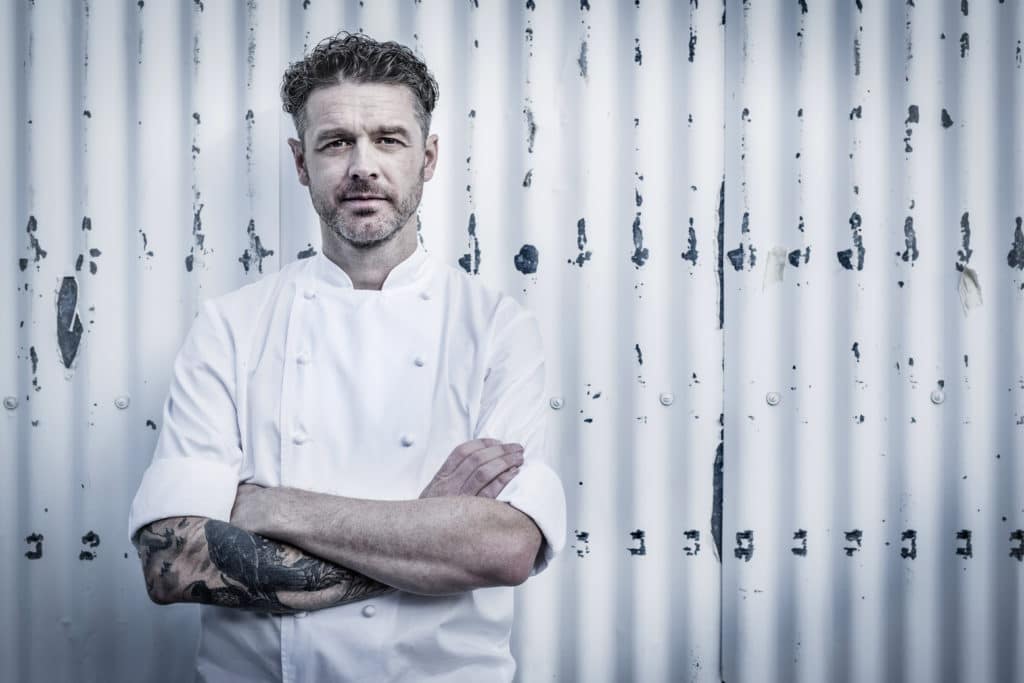
“You’ve got to give back more than you take.”
Jock Zonfrillo is going above and beyond in taking Down Under on a journey of Aboriginal food discovery. He’s the Italian-Scottish ‘Mad Max of foraging’ who happily swapped three Michelin-starred kitchens in London for starting a nonprofit in Australia – and then won the prestigious Basque Culinary World Prize 2018, a food Oscar for chefs improving society through gastronomy.
A colourful past includes working with Marco Pierre White, Damien Hirst and Gordon Ramsay, and a struggle with addiction, but today the pioneering chef is celebrated for championing the culture of the native peoples of Australia and getting wild with experimental indigenous ingredients in his Orana restaurant.
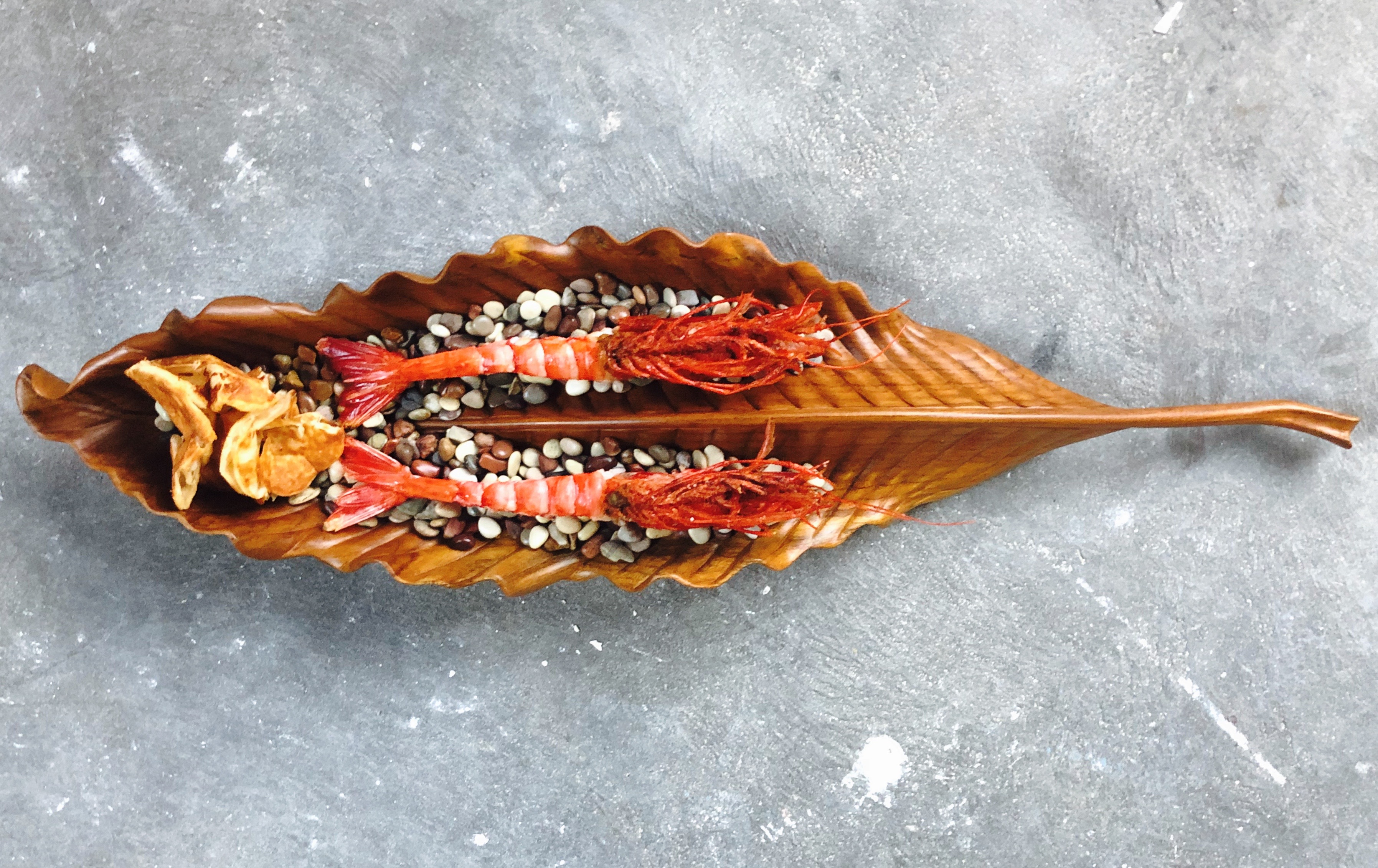
Cape Moreton scarlet prawn roti | Photo: Matthew Turner
Rather than being interested in having a successful restaurant (too late, it is), Jock is more focused on The Orana Foundation bringing back flavours “used by the oldest surviving culture in the world that has eaten off the land for 60,000 years.” Having first visited Australia’s indigenous communities nearly 20 years ago, the chef is working to safeguard Aboriginal culinary traditions by creating one of the biggest Indigenous food databases in the world.
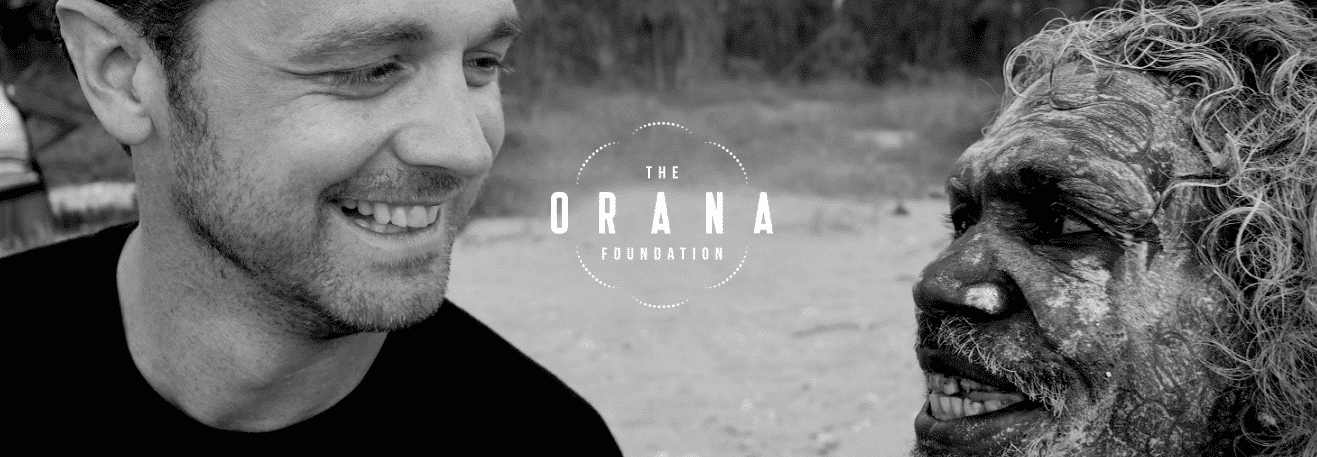
Orana means welcome in some Aboriginal languages and Jock is doing exactly that – welcoming new conversations: “As a chef, the only way I can really change anything is through food,” he says, “which just happens to be a great connector.” Lisa Goldapple chatted to Australia’s top chef.

Jock on sucking worms like spaghetti, creating a future that doesn’t suck and the Aboriginal didgeridoo-playing busker who blew his mind
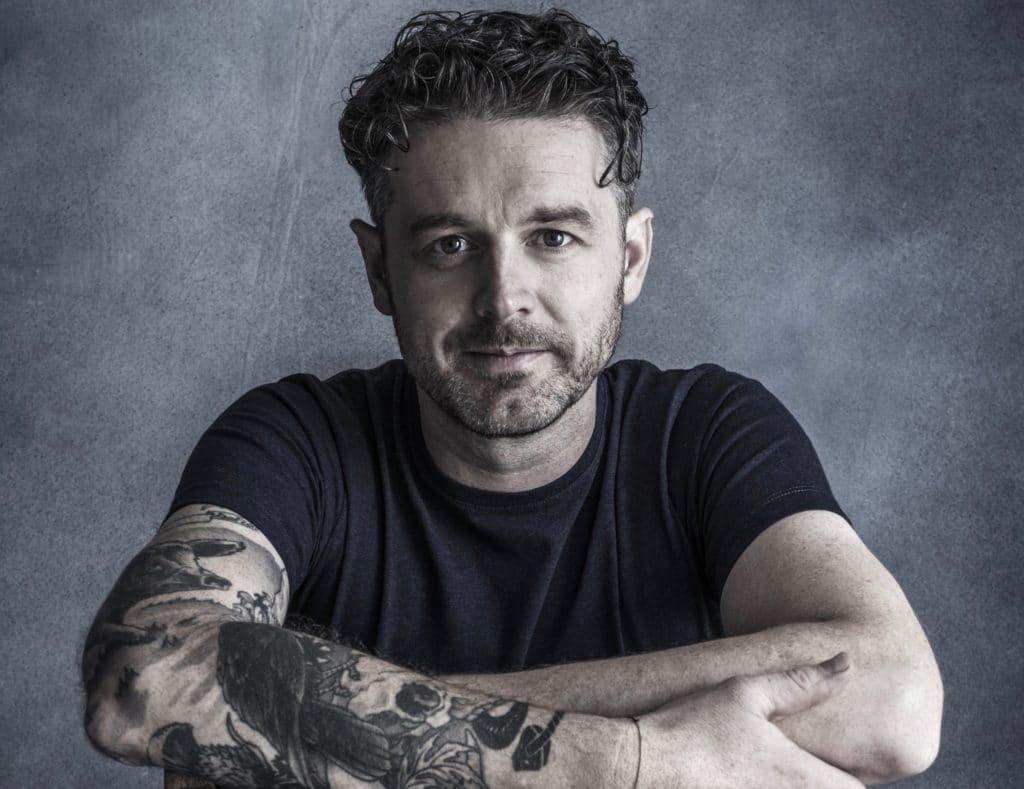
Jock is a guest chef on MasterChef Australia
You can only do so much as a chef, no matter how fucking rockstar you are. If you’re walking into political corridors, and you’re touching sensitive areas, you need a lot more than just being a chef.
Without purpose, the search for perfection is pointless. Having come out of three Michelin star kitchens in London, I am very over ‘full-on-wastage’ in the pursuit for perfection, which means nothing at the end of the day.
When I’m in the middle of nowhere I feel at home. I’ve got a greater understanding of Indigenous Australia – its people and their culture – than cities like Sydney or Melbourne or Adelaide.
People queue up for hours to see the pyramids and museums. Indigenous Australians have been here for more than 40,000 years before the Egyptians built the pyramids. We can’t talk to the Egyptians about what happened, but these people are still alive and they’ve got memories!
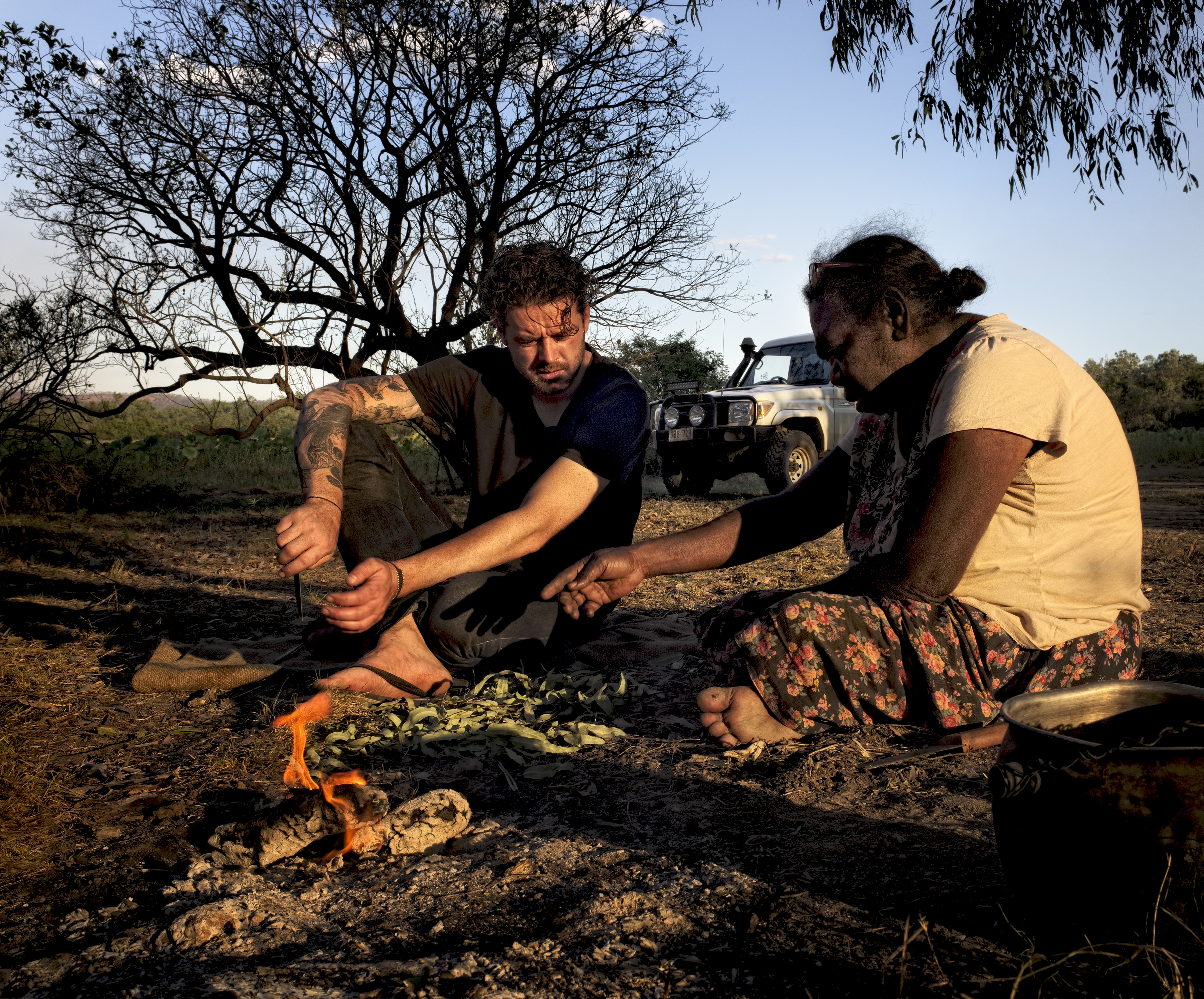
Jock with Patricia McTaggart | Photo: PA Jorgensen, Fool Magazine
The Indigenous way of life is closely connected to nature, the land and their beliefs. In 2001 I had no idea of the spiritual side and had a steep learning curve to understand the more challenging concepts of their culture. It’s not something that happens overnight.
Jimmy was the first Indigenous man I met. He told me, “You’ve got to give back more than you take”. There wasn’t a book that could help me, a quick manual or YouTube video to fill me in. I needed to go and visit communities, zip up the knife and learn.
What what I learned while talking to Jimmy blew my mind. It was so at odds with what all the chefs in the early 2000s were saying about there being no Indigenous food culture at all.
Orana was forced to register as a nonprofit under the ‘benevolence’ category. You can’t register charity under ‘culture’ or ‘food’. That was one of my first realisations that there was something wrong. It says a lot about the situation that exists here in Australia around the perception that Indigenous people need ‘help’.
I talk about hunting, gathering, foraging and creating fires. Orana’s success as a foundation was always almost guaranteed, because our subject matter is very close to the heart of every single Indigenous man, woman and child in this country.
Indigenous kids have got more chance of being incarcerated than finishing school. By doing food projects with Orana restaurant, making it globally known and number one in Australia, kids can see projects created by their parents, uncles, grandparents, and they’re going “Holy shit, this is our culture. I’m proud of it!”
Winning the Basque Culinary World Prize allows us to open up more more conversations. Working with Dr Norman Gillespie, who used to run UNICEF Australia, for five years has been key to having a voice as a legitimate entity. It meant we could set up the foundation properly and be mindful of governance.

A mangrove worm being harvested
Mangrove worms look worse than they taste. The first time I tried one was in the 2000s when an old lady pulled one out of a tree. She waved it in my face saying, “delicious, delicious!” I’m looking at her going “What the **** is that?!”. They’re 45 centimetres long and one centimetre thick. She took the tail end in my mouth and told me to suck it like spaghetti, so all the mud comes out the bottom. It tasted like beautiful fresh shellfish. It turns out the mangrove worm isn’t a worm at all, but a clam.
There was never a more poignant moment. One of the biggest reasons there’s such a cultural divide in this country is because people can’t get their head around the spiritual stuff – the difference between worms and clams. That worm is just another food source.
There is lot of discrimination around food. For some people the thought of eating haggis, tongue or black pudding is awful because it’s blood. People in the UK would eat spaghetti clams, but then when they go to Barcelona, the thought of eating razor clams freaks them out. Look at Italian food – ‘nduja has only recently become trendy. Years ago, nobody would go anywhere near it with a baseball bat.
We got we got busy restaurant, but people still come in with prejudice. They sit down and go. “I just want to put it out there, there’s no fucking way I’m eating anything weird!”

‘Weird’ and wonderful
The Native Australian Foods Database will include astronomy and dreaming. It will have everything so that communities can grow things successfully… traditional knowledge, nutritional information, toxicity reports, edibility, the climates that something grows in, soil types, seasons and how long before a plant produces.
The biggest challenge has been protecting the IP rights of Indigenous people and their traditional knowledge. That is always in the forefront of of anything we do. You can’t see parts until the community choose to make it open source. For example, if they know that a certain leaf ground up is good for arthritis, it stops a pharmaceutical company reaping the benefits. Every elder that we’ve ever worked with is excited about information being in a safe environment that their grandkids and future generations are going to be able to connect with – in a way that’s scientifically-backed and protected. The effect benefit-sharing can have on communities all across the country is huge.
The database will always be there. It won’t be finished in my lifetime, that’s for sure.
For years people have asked me, “Why can’t you close the gap?” Commercialisation is at one side and then the other side there’s like cottage industry and wild harvest foraging, boutiquey type native food industry is going on and there’s this huge space in the middle. You can’t close that gap today. It’s too big. You need to fill it.
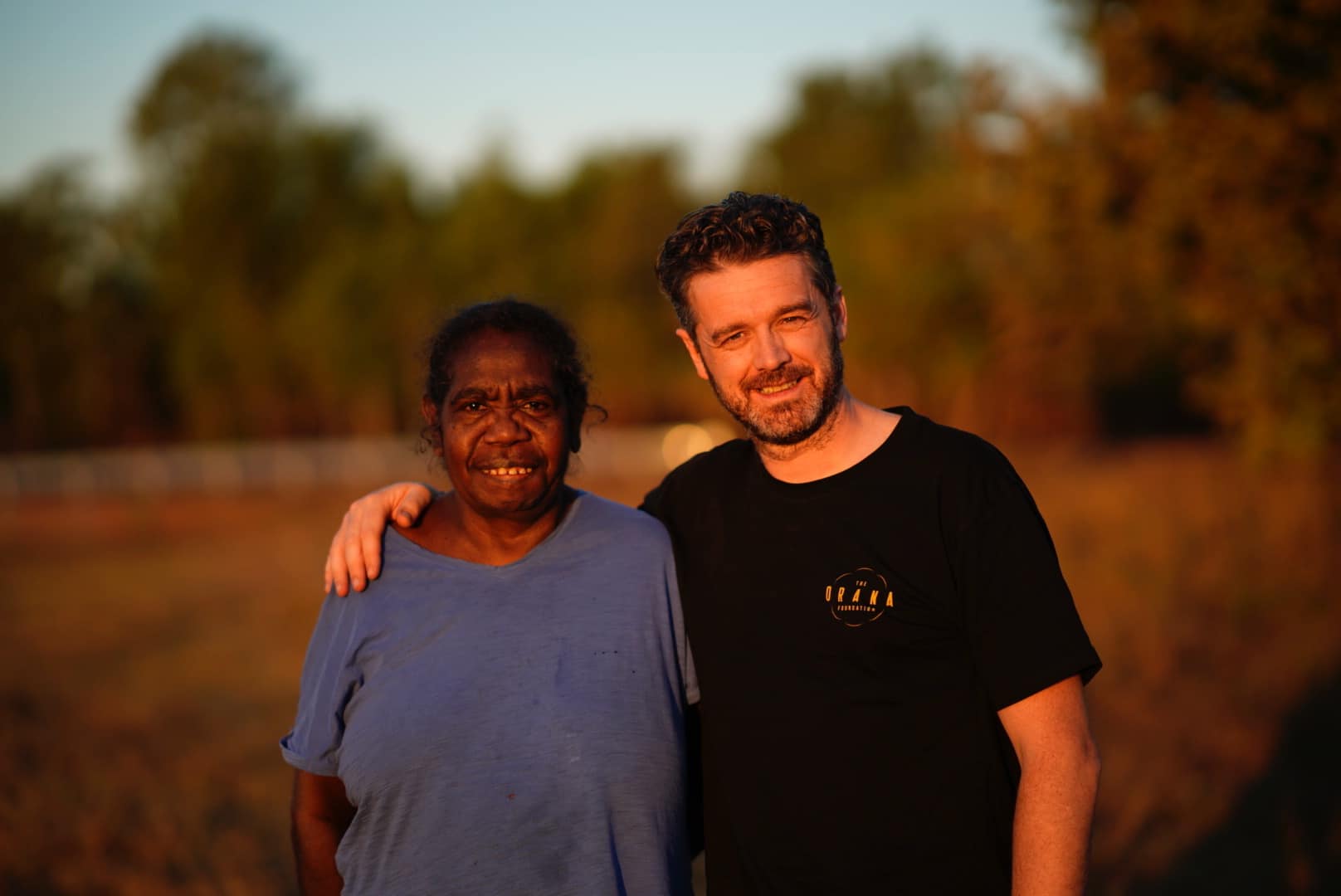
Filling the gap with Patricia McTaggart
To have an impact we went back to the basics. Commercialisation relies on, for example, a big biscuit manufacturer deciding to give back to communities. “We’ve got a contract with Qantas for 10 million biscuits a year, why don’t we use Indigenous ingredients in our biscuits instead of hazelnuts?”
With the database they can find an alternative. They could find a nut or a seed to replace that hazelnut. They can reach out to us and explain they would like to buy 500 tonnes per month of this nut. We go, “Great! We can do a project in these communities, they’re project-ready, the investment is this much!” – or we can fundraise investment with safe knowledge that we have a buyer.
Industry and peer groups push chefs to be ethical. We should be ethical, but if that closes your doors because customers can’t pay, then there’s nothing ethical about that. You’ve just ****ed someone’s life!
It’s very rare that I ever go to supermarket. There are chickens for sale for $8! That’s two coffees for a live animal. Does the customer actually realise – or care – whether that is ethical at all? You can make all the organic chickens you like, but I guarantee the top-selling chicken is the cheap one. Ask Tesco, Woolworths or Coles or whoever. You can lead a horse to water, but you can’t make it drink.
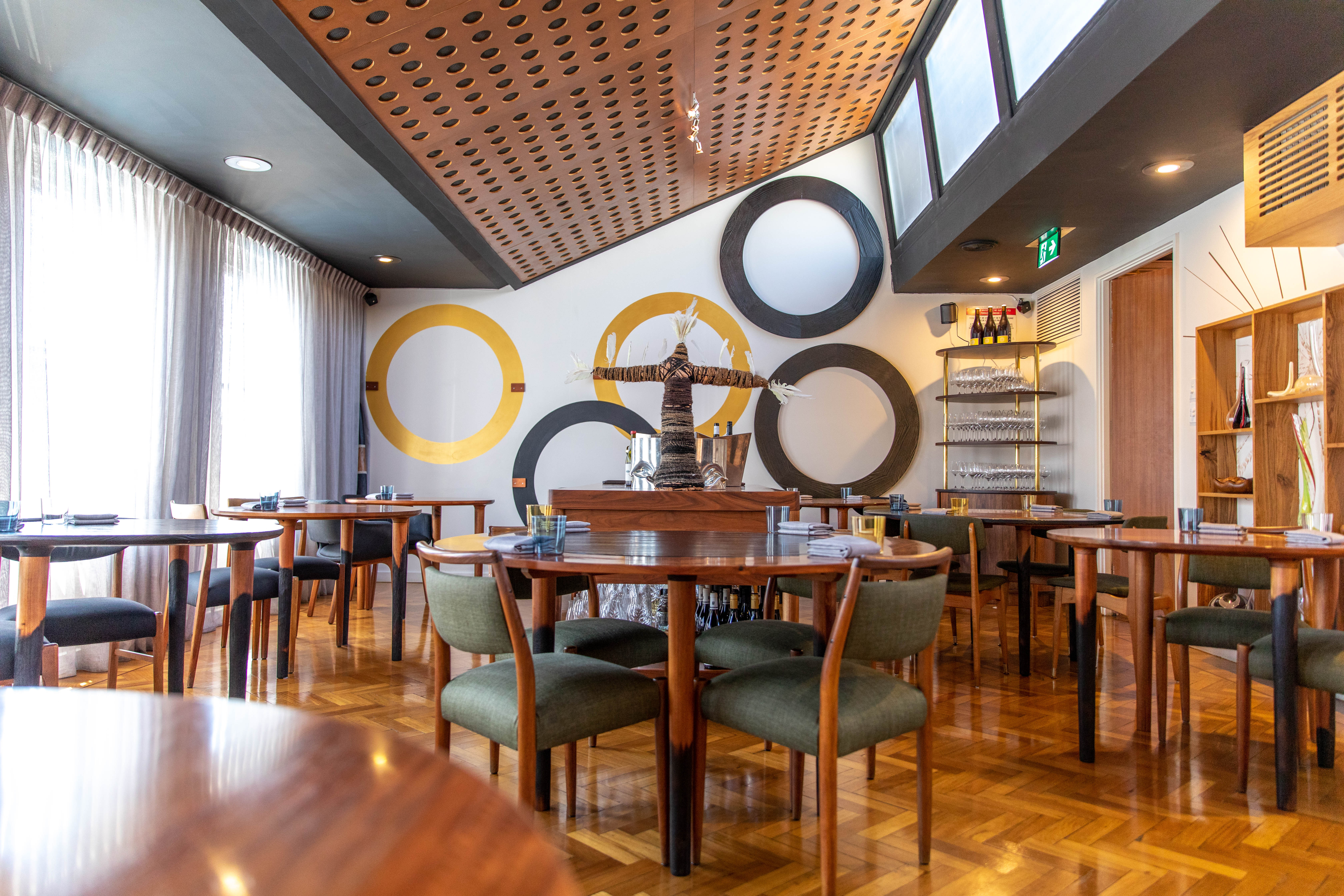
Orana in Adelaide is Australia’s best-recognised restaurant | Photo: Lewis Potter
The only reason Orana exists was to set up the Foundation. We’re only three years into the foundation. but already I’m still looking at a restaurant going, that’s a giant pain in the ass! Changing customer perception is our biggest challenge. My staff hate me saying it but I don’t really give a **** about the restaurant. It was a vehicle to get people to understand and get on board with what we’re trying to do the foundation – and it’s worked!
I spent a month with Alex Atala in the Amazon. He’s someone I look up to a lot. He invited me over when he was setting up Ata Institute in the early days. We talked about how he’s interacting with Indigenous people, what he did wrong, the pitfalls, the good, the bad, and how he’s working with politicians and anthropologists. I was hungry for knowledge or and he was kind enough to open his doors and let me know anything I needed to know.
People in Australia need to pay 40% more for food than they are now. That’s if they want to be anywhere close to making a difference. Politicians find dollars down the back of the sofa to fund hospitals, old age care, blah, blah, blah, but they never touch food. At some point they’re going to have to realise that food has to be right up there next to water at the top.
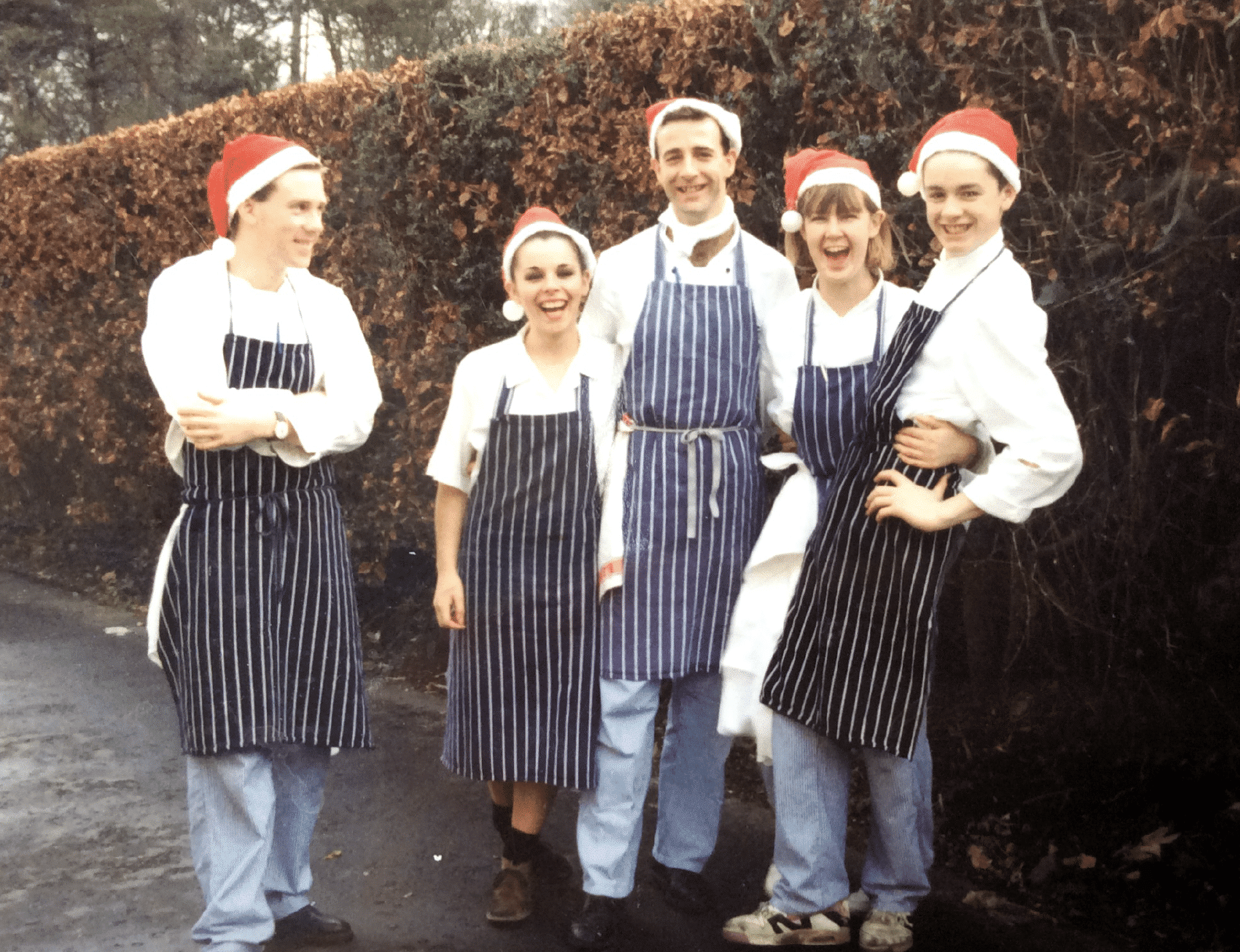
Young Jock aged-13 on the right (also moonlights as Santa)
I’ve got an 18-year-old, a 13-year-old and a one-year-old. The world is changing at such a rapid pace, he’s probably never going to drive a car. Of course I’m worried for the kids, but there’s a part of me that’s always excited for what might change. I’m ever hopeful that we’ll wake up.
Italians refusing to do anything other than sit around a table for a meal is a very positive thing for any family. You can’t tell me that there’s nothing positive would come out of any family, dysfunctional, or not, from sitting round a table.
Sometimes I’m just too nice! I don’t want to say a walkover, but if I’m actually going to make a change, I’m going to have to get tougher as a person. That’s the way it is now: if someone crosses me they have got my wrath ahead of them!
If I had my choice of cities to live in, Barcelona would be in the top five. There is nothing like sitting sitting at Bar Pinotxo and having a coffee and pastry in the Boqueria market in the morning, or a chickpeas and tripe dish.
Every single country politics is ****ed. Look at politics all over the world. It’s no different here. What do you do when you wouldn’t vote for any of these people?
Fixing the future is about… cultural normalising in terms of looking at someone else’s culture or sharing culture or understanding at least. Yes, I have become more spiritual!
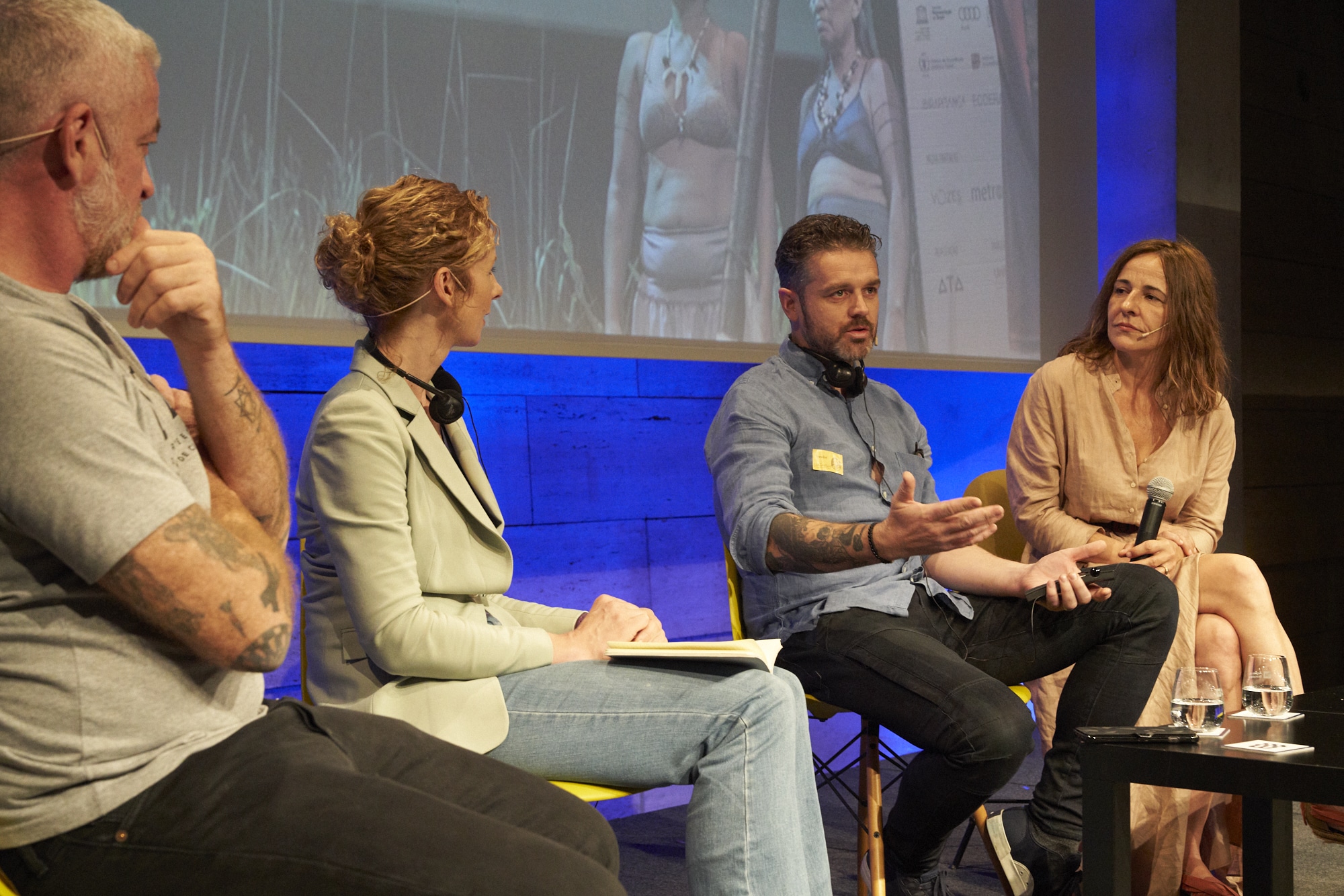
Jock on stage at Fixing the future 2019 with Alex Atala, Bee Wilson and Maria Solivellas
